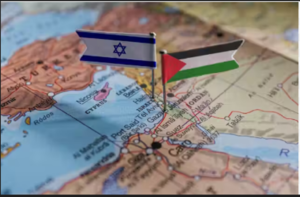World Leaders and the Palestine Conflict: A Political Overview.

The Palestine conflict has long stood at the heart of Middle Eastern politics, sparking global debate and eliciting varied responses from world leaders. While the issue remains deeply complex, understanding the geopolitical dynamics and international reactions is crucial. In this article, we’ll explore how major world leaders have responded to the conflict, how their policies shape the narrative, and what the future may hold.
A Historical Backdrop:
To begin with, the roots of the Palestine conflict stretch back to the early 20th century. Following the collapse of the Ottoman Empire, British colonial mandates and the 1948 creation of Israel led to ongoing disputes over land, sovereignty, and human rights. Over time, this has evolved into a broader conflict involving military occupation, settlements, and political autonomy.
The Role of the United States:
Undoubtedly, the United States plays a central role in the Palestine conflict. Historically, U.S. presidents have supported Israel, citing strategic alliances and shared democratic values. For example, former President Donald Trump recognized Jerusalem as Israel’s capital, a move that significantly shifted the diplomatic landscape.
On the other hand, President Joe Biden has taken a more cautious approach. While continuing military aid to Israel, his administration has also emphasized humanitarian aid to Palestinians and supported a two-state solution. Nevertheless, critics argue that U.S. policy often lacks the balance needed to mediate peace effectively.
European Union: Between Diplomacy and Division:
Meanwhile, the European Union presents a more nuanced stance. Although EU member states generally support a two-state solution, internal divisions prevent a unified foreign policy. For instance, countries like Ireland and Sweden have pushed for formal recognition of Palestine, whereas others maintain strong economic ties with Israel.
Consequently, the EU’s influence is often limited. Still, through humanitarian aid, public diplomacy, and support for international law, the EU continues to play a significant, albeit secondary, role in the conflict.
Russia and China: Strategic Silence or Tactical Involvement:
In contrast to Western powers, Russia and China have historically positioned themselves differently. Russia, for example, has maintained diplomatic relationships with both Israel and Palestine. As a result, it often acts as a mediator in multilateral talks, though its effectiveness is debatable.
Similarly, China has expressed support for Palestinian statehood. However, Beijing’s actions rarely extend beyond rhetoric. Even so, as both nations seek to expand their influence in the Middle East, their role in the Palestine conflict may grow over time.
Regional Powers: Allies and Adversaries:
Equally important are the roles of regional actors. Countries like Iran, Saudi Arabia, Egypt, and Turkey all have stakes in the outcome. Iran openly supports Palestinian groups like Hamas, while Saudi Arabia has increasingly warmed to Israel, especially in the context of shared concerns over Iran.
Notably, the Abraham Accords marked a significant shift. Brokered by the United States in 2020, these agreements normalized relations between Israel and several Arab nations, including the UAE and Bahrain. This not only altered regional dynamics but also marginalized Palestinian interests on the diplomatic stage.
The United Nations: A Voice for Peace:
It is also essential to highlight the role of the United Nations. While the UN has passed numerous resolutions affirming Palestinian rights, enforcement remains a challenge. The Security Council, often hamstrung by veto power politics, struggles to present a unified stance.
Despite these limitations, UN agencies like UNRWA continue to provide critical support to Palestinian refugees. Therefore, the UN remains a vital, if imperfect, platform for advocacy and diplomacy.
Challenges Ahead:
Given the current geopolitical landscape, resolving the Palestine conflict remains a daunting task. Although many world leaders call for peace and justice, political interests often take precedence. Additionally, internal divisions within both Israeli and Palestinian leadership further complicate negotiations.
In summary, world leaders have profoundly influenced the course of the Palestine conflict. While some advocate for diplomacy and dialogue, others prioritize strategic alliances or regional dominance. Moving forward, meaningful change will require not just international pressure, but also local cooperation and long-term commitment.
Above all, understanding the diverse perspectives of global powers is essential. Only through collective efforts and sustained engagement can a just and lasting solution be envisioned.